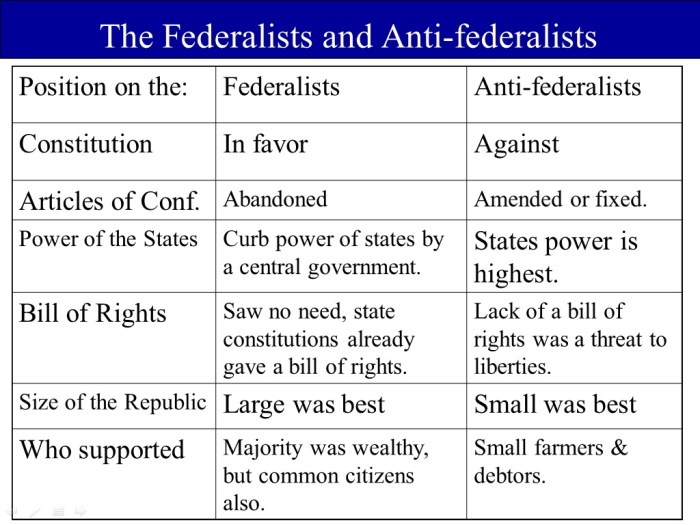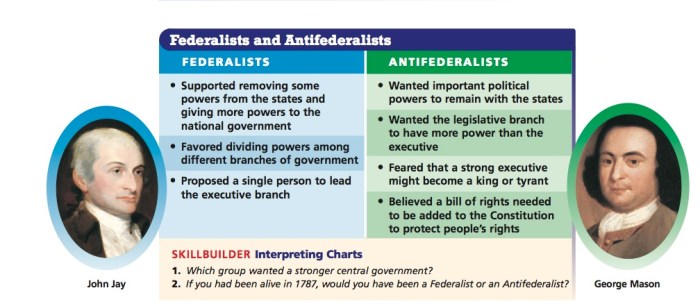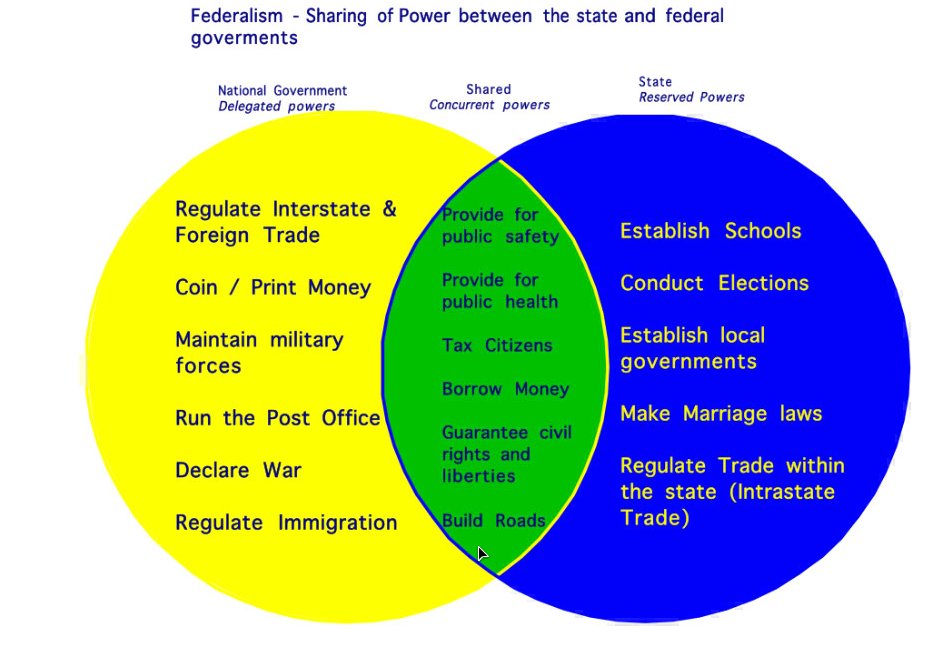Similarities between anti federalists and federalists – The similarities between anti-federalists and federalists during the ratification debates of the U.S. Constitution provide a fascinating lens through which to examine the ideological foundations of American politics. Despite their ultimate disagreement on the scope of federal authority, both groups shared common ground on fundamental principles that shaped the nation’s political development.
Similarities in Beliefs

Both Anti-Federalists and Federalists shared certain fundamental beliefs, including the importance of individual liberty and limited government. They believed that the government should not infringe upon the rights of individuals and that its power should be constrained.
Personal Rights
- Anti-Federalists feared that the new federal government would be too powerful and would erode individual liberties.
- Federalists also valued personal rights but believed that a strong central government was necessary to protect them from foreign threats and internal disorder.
Economic Views
Both groups shared concerns about economic issues such as taxation and debt. They both desired a stable and prosperous economy.
Taxation and Debt
- Anti-Federalists opposed the federal government’s power to tax, arguing that it would be burdensome to the people.
- Federalists believed that the federal government needed the power to tax in order to raise revenue for its operations.
Views on Federal Power

Anti-Federalists and Federalists held opposing views on the extent of federal authority. Anti-Federalists favored a weak central government with limited powers, while Federalists advocated for a stronger federal government with more authority.
Federal Powers
- Anti-Federalists opposed the federal government’s power to regulate commerce, arguing that it would give the federal government too much control over the economy.
- Federalists believed that the federal government needed the power to regulate commerce in order to promote economic growth and stability.
Concerns over Representation

Both Anti-Federalists and Federalists shared concerns about representation and the rights of states. They both believed in the importance of a strong central government, but they also wanted to preserve the autonomy of the states.
State Rights
- Anti-Federalists believed that the federal government should have limited powers and that the states should retain most of their authority.
- Federalists believed that the federal government needed to be strong enough to protect the nation from foreign threats and internal disorder, but they also recognized the importance of state autonomy.
Amendments to the Constitution

The Bill of Rights, which was added to the Constitution after the ratification of the original document, addressed many of the concerns of both Anti-Federalists and Federalists. It guaranteed individual liberties and limited the power of the federal government.
Bill of Rights, Similarities between anti federalists and federalists
- Anti-Federalists supported the Bill of Rights because it protected individual rights from infringement by the federal government.
- Federalists also supported the Bill of Rights because it helped to ensure that the federal government would not become too powerful.
Popular Questions: Similarities Between Anti Federalists And Federalists
What were the key similarities between anti-federalists and federalists?
Both groups shared a commitment to individual liberty, limited government, and a stable economy.
How did anti-federalists and federalists differ in their views on federal power?
Anti-federalists favored a decentralized government with limited federal authority, while federalists advocated for a stronger central government with broad powers.
What role did the Bill of Rights play in addressing the concerns of both groups?
The Bill of Rights was a compromise that incorporated many of the concerns raised by anti-federalists, including the protection of individual rights and the reservation of certain powers to the states.